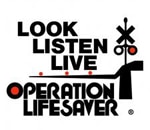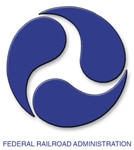
SMART Transportation Division Washington State Legislative Director Herb Krohn Nov. 7 appeared on Northwest Now, a Public Broadcasting System program that airs in Washington on Television Station KBTC.
Northwest Now is an Emmy®-award winning weekly public affairs show that goes beyond the headlines to provide perspective on the issues that have western Washington talking.
In this episode, Northwest Now takes a closer look at coal trains and the two proposed terminals that would be used to export coal and oil through Washington. Krohn discusses these issue with host Tom Layson and Sightline Institute policy director Eric De Place.
To view the episode, click here.
Author: amyr
 The results of a new survey by Fleetmatics Group PLC show that parents would like more visibility into their children’s safety aboard the school bus, as well as more accountability for operators. Nearly nine in 10 parents responded they want to see closer GPS monitoring of buses and their drivers.
The results of a new survey by Fleetmatics Group PLC show that parents would like more visibility into their children’s safety aboard the school bus, as well as more accountability for operators. Nearly nine in 10 parents responded they want to see closer GPS monitoring of buses and their drivers.
Fleetmatics Group, a global provider of mobile workforce solutions, requested the study to raise awareness of school bus safety during National School Bus Safety Week, from Oct. 20 through 24.
Read the complete story at School Transportation News.
 JACKSONVILLE, Fla. – Florida-based railroad operator CSX Corp. plans to cut 300 management workers, mostly through buyouts by the end of the year.
JACKSONVILLE, Fla. – Florida-based railroad operator CSX Corp. plans to cut 300 management workers, mostly through buyouts by the end of the year.
Most of the workers targeted are based at the company’s Jacksonville headquarters. Spokeswoman Melanie Cost tells The Florida Times-Union that layoffs are possible if fewer than 300 workers take the buyouts.
Read the complete story at Television Station WESH.
World War I – known at the time as “The Great War” – officially ended when the Treaty of Versailles was signed on June 28, 1919, in the Palace of Versailles outside the town of Versailles, France. However, fighting ceased seven months earlier when an armistice, or temporary cessation of hostilities, between the Allied nations and Germany went into effect on the eleventh hour of the eleventh day of the eleventh month. For that reason, November 11, 1918, is generally regarded as the end of “the war to end all wars.”
View more here.

Some 17,000 will have been hired this year, far exceeding the projected industry target of 12,000, according to the Association of American Railroads.
Read the complete story at Railway Age.
Days after Warren Buffett announced his US$26.5 billion buyout of railroad BNSF, he insisted that he’d paid a steep price to own a business that would benefit his company, Berkshire Hathaway Inc., over the next century.
“You don’t get bargains on things like that,” he said in a November 2009 interview with Charlie Rose that aired on PBS. “It’s not cheap.”
Read the complete story at the Financial Post.
NASHVILLE, Tenn. – The United Auto Workers union is hailing a new Volkswagen policy as a vehicle to soon gain representation of workers at its first foreign auto plant in the South.
Not so fast, says a group of workers who orchestrated a narrow defeat of the UAW in a union vote at Volkswagen’s Chattanooga plant earlier this year.
Read the complete story at the Associated Press.

Grayson and Ed Schafer of Union Pacific Railroad, along with Idaho Peace Officers and then-Gov. Cecil Andrus, started Operation Lifesaver as a six-week public awareness demonstration program in Idaho. After the state’s grade crossing-related fatalities fell that year by 43 percent, the program began to spread nationwide.
Read the complete story at Progressive Railroading.

“Safety is our top priority and this is just the latest step in our mission to ensure the safety of railroad employees, the public and the communities these railroads pass through,” said U.S. Transportation Secretary Anthony Foxx. “The GROW AMERICA Act will help advance safety by harnessing technology and research, as well as implementing Positive Train Control and updating federal hours of service regulations.”
The rule improves training for all safety-related railroad employees, regardless of whether the person is employed by a railroad, a contractor or a subcontractor, by requiring:
- Minimum training standards for each type of safety-related railroad employee;
- FRA review and approval of each employer’s training program to ensure employees will be qualified to measurable standards;
- Greater use of structured on-the-job and interactive training;
- Methods for each employer to review and improve training programs annually with a focus on closing performance gaps; and
- A streamlined, nation-wide approach that bolsters training for operators of roadway maintenance machines equipped with a crane that work across multiple jurisdictions.
“Quality training is fundamental to the execution of safety sensitive railroad duties,” said Federal Railroad Administrator Joseph C. Szabo. “This regulation ensures the heightened professionalism of the workforce that keeps our railroads running safety and efficiently every day.”
Through the Railroad Safety Advisory Committee (RSAC), FRA is working to complete the actions mandated by RSIA, including developing a framework for the creation and implementation of performance-based programs that anticipate and reduce risk. An RSAC working group has developed recommendations for fatigue management provisions and the agency moving forward with rulemakings related to the transportation of crude oil and ethanol by rail – one focusing on the securement of equipment and the other on the appropriate crew size requirements when transporting highly flammable liquids.
Additionally, FRA is preparing a final rule amending its regulations related to roadway workers and is developing other RSAC-supported actions that advance high-performing passenger rail, such as proposed rules on standards for alternative compliance with FRA’s Passenger Equipment Safety Standards.
The Federal Railroad Administration’s (FRA) mission is to ensure the safe, reliable, and efficient rail transportation of people and goods for a strong America, now and in the future. The GROW AMERICA Act supports this mission with predictable, dedicated investments that enhance safety and modernize our rail infrastructure to meet growing market demand. The Act also builds on current investments to vastly improve the system in areas ranging from Positive Train Control (PTC) implementation to enhancing flexibility in financing programs that will better enable the rehabilitation of aging infrastructure.
To view the final rule, click here.